#gren willa
Text
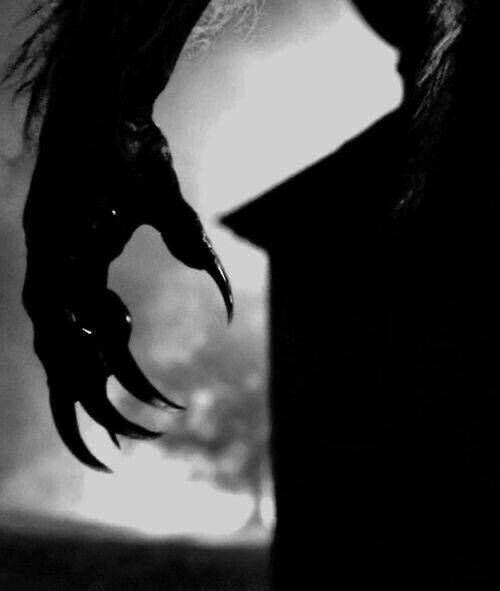
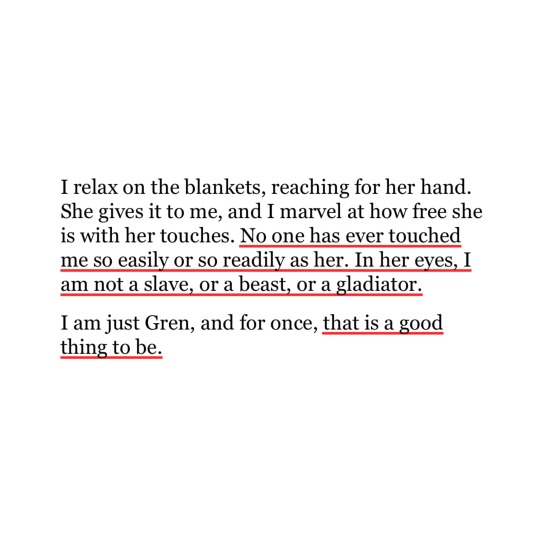
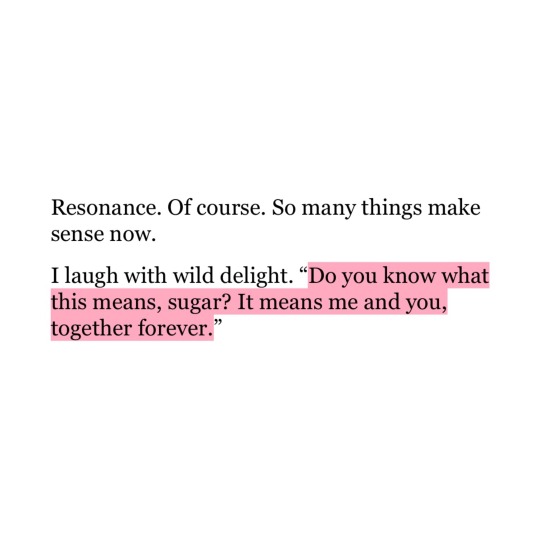


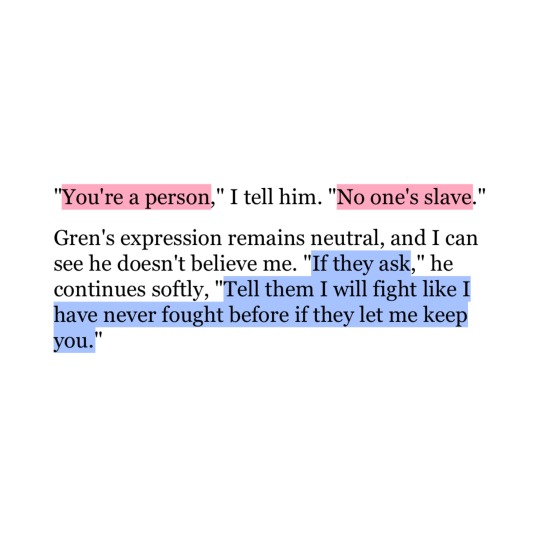
📖: 𝑾𝒊𝒍𝒍𝒂'𝒔 𝑩𝒆𝒂𝒔𝒕 (𝐼𝑐𝑒ℎ𝑜𝑚𝑒 #3) 🖤🌊🛸
✍🏽: 𝐑𝐮𝐛𝐲 𝐃𝐢𝐱𝐨𝐧
Get the book! 🌟
#willa’s beast#ruby dixon#willa x gren#gren x willa#icehome#ice planet barbarians#ipb#monster romance#alien smut#alien romance#paranormal romance#booklover#new books#tbr#book tumblr#booknerd#books recommendations#books#books recs#libros#libros recomendados#frase libro#book couples#couple aesthetic#love quotes#smut#smutty books#booklr#friends to lovers#science fiction romance
202 notes
·
View notes
Text
I love icehome, more than Ice planet barbarians. I didn't think that was possible. Gren, n'dek and the clones?? (I don't remember their names but I loved them)
11 notes
·
View notes
Text
Book Review:
basically all of Ruby Dixon’s books because I fell down a trash chute
How do I explain to my friends and family that I read all 22 books (plus the 4 honeymoon spin-offs) of the Ice Planet Barbarian series?
It doesn’t stop there. I also read all 17 of the Ice Home Series and 7 of the Risdaverse Tale series before I realized that I have a problem.
Is it my raging breeding kink, the fact that I love a big guy who is kind and good to his woman and only wants to make her happy, or is it that I actually enjoy Ruby Dixon’s heroines and find them to be funny and relatable and oddly enough an interesting depiction of feminism in a hunter/ gatherer society?
I’m not entirely sure. These books aren’t perfectly written. She actually edits some of the characters mid series. And yet, they were my nightly read for almost the entire year. I had to seriously stop and question if it was good for my mental health to only read these books. I concluded that it wasn’t, although, there are also worse alternatives than reading about alien planets…
If you have any semblance of self control then maybe you can figure out what the hype is about these books and get a chuckle out of a couple of them. If you are a binge reader, I recommend steering clear of Ruby Dixon and instead channel your energy into trying to find a real life “blue alien” of your own, as I will be.
For the IPB fans, my favorite couples are listed below in no particular order:
1. Liz & Raahosh (fellow Star Wars girlie)
2. Farli & Mardok (did not expect to like them so much but the new lore was fun)
3. Josie & Haeden (when she got swallowed by the sky claw are you kidding me)
Ice home couples:
1. Willa & Gren (legit beauty and the beast)
2. Ashtar & Veronica (oh so there’s dragons now)
honorable mentions to carving your betrothed a wedding gift. honestly I really liked the sense of community and low key wished we lived that way now.
⭐️⭐️⭐️⭐️out of 5 stars. I can’t deny that they’re entertaining but maybe go read something else.
42 notes
·
View notes
Text
Icehome book 3 thoughts(part 3):
Willa continues to be the most selfish character I've ever read and never even asks if Pashov is ok????
She cries and is upset about hurting him when she can be the victim but now that she has what she wants she gives no shits.
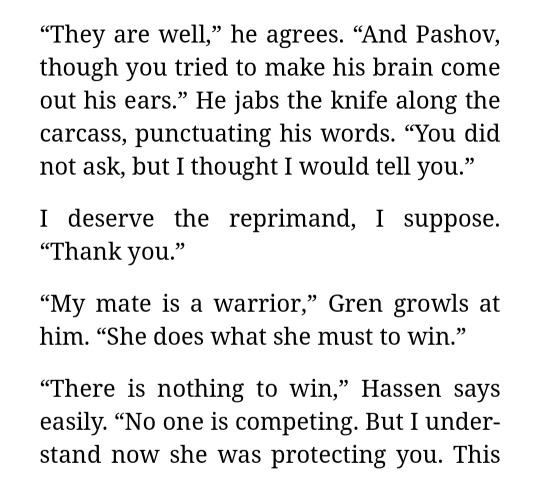
I hate how little remorse she has.
"I deserve the reprimand I suppose..."
Oh FUCK YOU Willa!

I wish Stacy was there to whap her with her "frying pan" and give her a piece of her mind because Sadly Pashov is far too sweet to do so when they see him again.(Also once again thank you Hassen for not holding back from checking her on her BS).

Well you know what, Willa!? Not everything is about YOU. GOD. It's nonstop with her. Always "me.me.me"
And you know I get it to an extent. Willa has been through some trauma and sometimes her responses are definetly a reflection of that BUT trauma is never an excuse to behave toxically and the sabotage the people around you. And Willa is constantly pushing her shit onto those around her!
When everyone's getting along: Willa has to bring up why they shouldn't and try to ruin it.
When everyone's being selfless and giving: Willa has to let Gren know how it's fake and can't be trusted.
When Gren is happy and growing as a person: Willa has to turn it and make it about her and her fears and how she just can't handle it if they betray her. Causing Gren to drop everything, want to give up his happiness, and possibly put their health at risk to appease her irrational anger. This is pretty toxic.



GREN IS THE ONLY REDEEMING PART OF THIS BOOK.
He tells her multiple times they were in the right to tie him up because he was going to kill them all and it's still not enough for her.
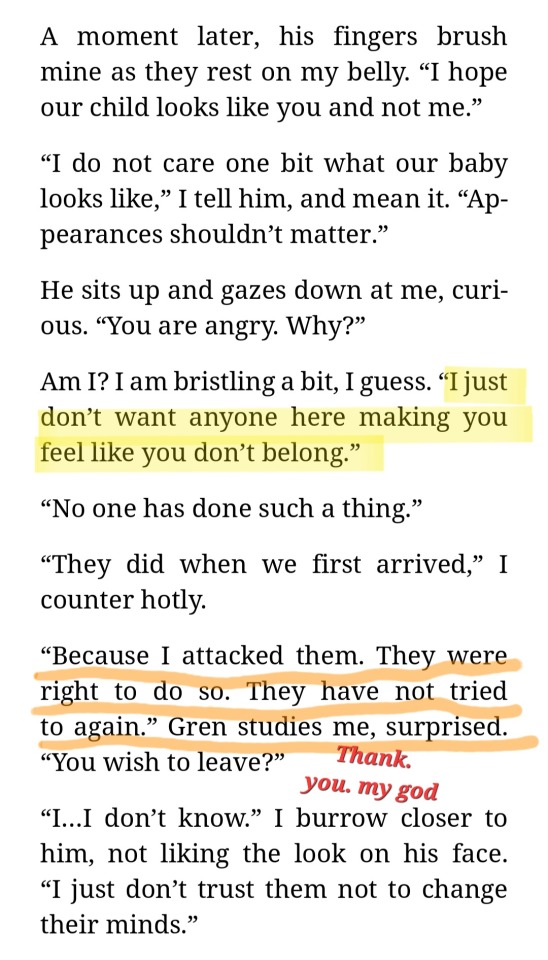
They are still horrific and evil and she's on the moral high ground always. Because this fictional narrative she's created can't be wrong right?!

Willa is always right!(sarcasm) Willa is absolutely the only one with any morals on this beach because she would've let him murder multiple people while calmly explaining the situation in a language he didn't understand🙄
Oh Bless your heart Willa- Kick fucking rocks.
Idiotic, selfish, bitch, irrational, self righteous- Ugh!
Oh and don't worry! Willa is like every toxic person you've encountered! I finished the book and she never once genuinely apologizes to anyone in the tribe. Not to Pashov(seriosuly!?), not to Hassen, not to Veronica, not to Mardok, not to Lauren or Marisol. Nope. She never feels bad about anything she does for more than a millisecond and is constantly shooting bitter accusations at everyone and attempting to make them feel shame for doing what was right in the moment to protect everyone. BUT trust me she is more than happy to take their hospitality and clothes and kindness, just to then throw it all back in their faces and still be prejudiced.

It's almost like she can't let people be happy. She constantly brings up what happened even though everyone's moved on and the Sa-Khui even apologized!!!
GREN the one who was the "victim" isn't even mad or holding it against them but Willa can't let it go and just has to try and make everyone uncomfortable and miserable!!!! Because it makes her feel better I guess!?

It's not cute. It's fucking TOXIC.
Gren deserves better.
But yup this was my least favorite book of all 24 ish Not -Hoth universe book I've read and it's all because Willa is absolutely unbearable and ungrateful and a complete selfish cunt. She's irrational and toxic and Gren is wonderful.
2 stars for Gren. That's the book rating. Willa can sit in a corner and brood for all I care.
Parts Below
《Part 1》:
《Part 2》:
《Part 3》: This Part
#ice planet barbarians#ruby dixon#icehome#ice planet barbarian#icehome series#icehome books#icehome willa#icehome willa's beast#willa gren#willa's beast#gren willa#gren is great#ice planet barbarians icehome#justice for pashov please
19 notes
·
View notes
Text
Five books I'm looking forward to reading in 2022:

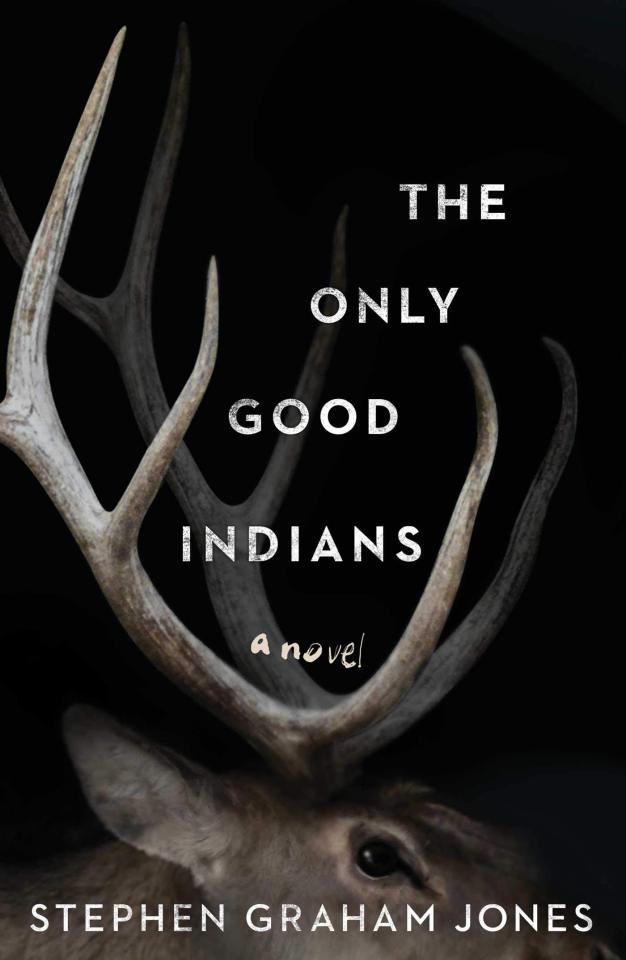



1. The Mere Wife by Maria Dahvana Headley
Two mothers—a suburban housewife and a battle-hardened veteran—struggle to protect those they love in this modern retelling of Beowulf.
From the perspective of those who live in Herot Hall, the suburb is a paradise. Picket fences divide buildings—high and gabled—and the community is entirely self-sustaining. Each house has its own fireplace, each fireplace is fitted with a container of lighter fluid, and outside—in lawns and on playgrounds—wildflowers seed themselves in neat rows. But for those who live surreptitiously along Herot Hall’s periphery, the subdivision is a fortress guarded by an intense network of gates, surveillance cameras, and motion-activated lights.
For Willa, the wife of Roger Herot (heir of Herot Hall), life moves at a charmingly slow pace. She flits between mommy groups, playdates, cocktail hour, and dinner parties, always with her son, Dylan, in tow. Meanwhile, in a cave in the mountains just beyond the limits of Herot Hall lives Gren, short for Grendel, as well as his mother, Dana, a former soldier who gave birth as if by chance. Dana didn’t want Gren, didn’t plan Gren, and doesn’t know how she got Gren, but when she returned from war, there he was. When Gren, unaware of the borders erected to keep him at bay, ventures into Herot Hall and runs off with Dylan, Dana’s and Willa’s worlds collide.
2. The Only Good Indians by Stephen Graham Jones
Seamlessly blending classic horror and a dramatic narrative with sharp social commentary, The Only Good Indians follows four American Indian men after a disturbing event from their youth puts them in a desperate struggle for their lives. Tracked by an entity bent on revenge, these childhood friends are helpless as the culture and traditions they left behind catch up to them in a violent, vengeful way.
3. The Broken Earth Trilogy by N. K. Jemisin (I know this is technically 3 books but I'm counting them as 1)
This is the way the world ends for the last time...
A season of endings has begun. It starts with the great red rift across the heart of the world's sole continent, spewing ash that blots out the sun. It starts with death, with a murdered son and a missing daughter. It starts with betrayal, and long dormant wounds rising up to fester.
This is the Stillness, a land long familiar with catastrophe, where the power of the earth is wielded as a weapon. And where there is no mercy.
4. Annihilation by Jeff VanderMeer
Area X has been cut off from the rest of the world for decades. Nature has reclaimed the last vestiges of human civilization. The first expedition returned with reports of a pristine, Edenic landscape; the second expedition ended in mass suicide, the third in a hail of gunfire as its members turned on one another. The members of the eleventh expedition returned as shadows of their former selves, and within weeks, all had died of cancer. In Annihilation, the first volume of Jeff VanderMeer's Southern Reach Trilogy, we join the twelfth expedition.
The group is made up of four women: an anthropologist; a surveyor; a psychologist, the de facto leader; and our narrator, a biologist. Their mission is to map the terrain, record all observations of their surroundings and of one another, and, above all, avoid being contaminated by Area X itself.
They arrive expecting the unexpected, and Area X delivers—but it’s the surprises that came across the border with them and the secrets the expedition members are keeping from one another that change everything.
5. The Icarus Girl by Helen Oyeyemi
Jessamy “Jess” Harrison, age eight, is the child of an English father and a Nigerian mother. Possessed of an extraordinary imagination, she has a hard time fitting in at school. It is only when she visits Nigeria for the first time that she makes a friend who understands her: a ragged little girl named TillyTilly. But soon TillyTilly’s visits become more disturbing, until Jess realizes she doesn’t actually know who her friend is at all. Drawing on Nigerian mythology, Helen Oyeyemi presents a striking variation on the classic literary theme of doubles — both real and spiritual — in this lyrical and bold debut.
116 notes
·
View notes
Text
because i wanted to drop some expanded folklore/retelling/alternate interpretation recommendations:
the mere wife by maria dahvana headley: inspired by the epic Beowulf, the mere wife centers around dana, a traumatized young veteran who returns to her rapidly gentrifying mining home town to raise her son gren. mistrustful of society and humanity in general and terrified of losing gren, dana raises him in near total isolation in the mountains bordering herot hall, the first of many shining new suburban expansions.
as gren grows, he becomes curious about the world outside their cave dwelling and eventually befriends dylan, the troubled son of willa, a neurotic socialite with her own baggage. gren and dylan’s unlikely friendship becomes an increasing risk as they age into teenagers, as gren is everything the pampered, bigoted and fearful residents of herot hall have trained themselves to hate.
the mere wife is an extremely compelling tale of two scarred mothers as it switches perspectives between the privileged and dissonant willa and the hardened but loving dana, both of whom are trying to protect their children from the abuse and trauma they suffered as they grew into adulthood.
also a pretty searing look at police violence, the intersection of racism, classism, and homophobia, and the military industrial complex’s exploitation of impoverished black and brown youth to fight its wars.
i, tituba: black witch of salem by maryse condé: i, tituba is a satirical in one sense but deadly serious in another take on tituba, the slave accused of spreading witchcraft to the young puritan girls of salem.
it tells the epic life story of tituba, from her conception aboard a slave ship headed to the caribbean to her childhood as an orphan raised by her foster mother mama yaya, who teaches her the power of healing and communion with the dead.
while tituba grows up technically a free woman, living in the shadow of the plantations but without an owner, she willingly enters slavery again to be with her beloved john indian, and winds up sold to the cruel and tyrannical reverend samuel parris and transported to boston and then salem massachusetts alongside his terrified family.
i tituba systematically unpacks ‘the protestant work ethic’ of the ‘upright and noble pilgrims’ who carved out their existence on the backs of the enslaved and the indigenous population.
tituba suffers just about every abuse and humiliation imaginable but refuses to allow herself to be dissuaded from practicing her own spiritual practices and actively seeks to show compassion and care towards her captors, despite it repeatedly backfiring.
ultimately she survives the witch trials and finds herself back in barbados, where her final fate as a devoted rebel against the plantation system that killed her parents awaits.
the bloody chamber by angela carter: probably carter’s most well known and popular set of short stories, the bloody chamber is a series of original takes on the most gothic and disturbing of european folklore, from bluebeard and his murdered brides to beauty and the beast to all sorts of werewolf and vampire mythos.
carter’s language is as lush and purple prosey as ever, and she vividly paints a series of terrifying and alluring pictures of decrepit castles and manor houses, unhinged inbred aristocrats preying on the peasantry, vampiric maidens and girls raised by wolves, men turned into beasts and beasts turned into men, and lots of sex, gore, ghostly music, and rustling taffeta.
deathless by catherynne m. valente: yes, endlesssly overhyped by tumblr but still a very compelling take on the russian folklore of koschei the deathless and his mortal turned goddess bride, marya morevna, this time set in parallel with the unfolding of russian history in the 20th century.
valente gives an absolutely merciless look at the spiteful and selfish whims of gods and what it means to give up your humanity for love, as well as a tortured narrative surrounding power and control in intimate relationships and questions of gender roles and sexuality.
deathless is probably a most capital R Romantic romance, mostly because both marya and koschei have heaps of charm and beauty and passion... and heaps of obsession, jealous violence, and power hungry ambition.
wide sargasso sea by jean rhys: should be required reading for everyone who has devoured Jane Eyre, rhys’ novella tells the take of the reviled and scorned first wife of rochester.
born to a plantation owning family whose fortunes are crushed when the british empire bans slavery, antoinette grows up a lonely and emotional child, rejected by her grieving and closed off mother and longing for a family and place in the world.
as a young woman her stepfather arranges her marriage to rochester, who wants what’s left of her inheritance, and antoinette finds herself caught between her island home where she is still seen as the hated daughter of slave holders, and england, where she is seen as an impure creole woman who will never be able to conform to victorian propriety.
although initially hopeful of a loving marriage, antoinette quickly realizes that rochester’s passion for her is propelled by fear and insecurity, which quickly makes itself known as he turns against her, labeling her ‘bertha’ after her ‘insane’ mother and treating her as a mentally unstable invalid and then as little more than a prisoner.
lovecraft country by matt ruff: lovecraft country both skewers and embraces the eldritch abominations of hp lovecraft, and tackles his own inhuman racism head on, through the perspectives of the courageous and clever atticus turner and his eccentric and loyal extended family. their adventures take them all over america and into a series of increasingly horrifying encounters with cults, monsters, and white supremacy - sometimes all three at once.
circe by madeleine miller: not nearly as discussed as its predecessor The Song of Achilles, Circe tells the story of Circe, daughter of the arrogant sun god Helios and by some accounts, the ‘first’ witch and sorceress to walk the earth.
exiled to her own desolate island kingdom after defying the gods, Circe becomes a powerful and infamous enchantress, painted as a villain while the gods, who amuse themselves by tormenting and impulsively rewarding men in turn, are honored and venerated. circe quickly realizes her growing powers make her a threat to mortals and gods alike, and must decide what her legacy will be and if she cares at all.
#recommendations#word to the wise#i tituba#circe#lovecraft country#deathless#wide sargasso sea#the bloody chamber#the mere wife
176 notes
·
View notes
Photo

Like the fool I am, I tried to draw Gren too soon after reading Worse Guy, and confused some of his featured with the Crulden clones. My bad oops
[left to right: Mycrul (Bad Guy), Gren (Willa’s Beast), and Victor (Worse Guy)]
18 notes
·
View notes
Text
The Mere Wife - Maria Dahvana Headley

Summary: Dana Mills and her young son Gren live a secret existence in the mountain above the gleaming suburban community of Herot Hall. When Gren becomes fascinated with a boy living in Herot Hall, he attracts the dangerous attention of his mother, Willa Herot.
Quote: “The world isn't large enough for heroes and monsters at once. There's too much danger of confusion between the two categories.”
My rating: 4.0/5.0 Goodreads: 3.92/5.0
Review: Myth-retellings can often feel a little tired, but there is nothing boring about this version of Beowulf. Headley’s take on the story is strikingly original, with an almost contemptuous de-centering of Beowulf (Ben Woolf in this version) and a fascinating exploration of monstrosity and motherhood. Motherhood is at the core of the story, but not any sort of soft or cliché version of it. Instead, Headley shows a range of mothers, who love, resent, protect, and hurt their children in turn. The magical realism—with the fantastic elements becoming increasingly in question later in the book—creates a proper destabilizing of reality. The language is beautifully ornate, which is well-suited to the epic origins of the story but does create too much emotional distance from the story in places.
To-read: Beowulf - trans. Seamus Heaney
#the mere wife#maria dahvana headley#book review#book recommendation#classics#beowulf#myth#magical realism
6 notes
·
View notes
Text
Book Review... Maria Dahvana Headley, “The Mere Wife”

Rating: 4.5/5 stars
Summary: Two mothers—a suburban housewife and a battle-hardened veteran—struggle to protect those they love in this modern retelling of Beowulf.
From the perspective of those who live in Herot Hall, the suburb is a paradise. Picket fences divide buildings—high and gabled—and the community is entirely self-sustaining. Each house has its own fireplace, each fireplace is fitted with a container of lighter fluid, and outside—in lawns and on playgrounds—wildflowers seed themselves in neat rows. But for those who live surreptitiously along Herot Hall’s periphery, the subdivision is a fortress guarded by an intense network of gates, surveillance cameras, and motion-activated lights.
For Willa, the wife of Roger Herot (heir of Herot Hall), life moves at a charmingly slow pace. She flits between mommy groups, playdates, cocktail hour, and dinner parties, always with her son, Dylan, in tow. Meanwhile, in a cave in the mountains just beyond the limits of Herot Hall lives Gren, short for Grendel, as well as his mother, Dana, a former soldier who gave birth as if by chance. Dana didn’t want Gren, didn’t plan Gren, and doesn’t know how she got Gren, but when she returned from war, there he was. When Gren, unaware of the borders erected to keep him at bay, ventures into Herot Hall and runs off with Dylan, Dana’s and Willa’s worlds collide.
Reviewer Comments: This book was perhaps the best adaptation/retelling of Beowulf I’ve ever read. I was wary at first, because I’m not a huge fan of novels set in suburbia, but the setting actually worked out very well, probably because I could see the author working with the themes of the original poem rather than strictly replicating the narrative/action. I’d recommend reading Beowulf before this book, since a lot of the things that happen in The Mere Wife take on new significance if you’re already familiar with the original text, but overall, this was a wonderful read.
Things I Liked
Prose: The prose isn’t quite stream-of-consciousness, but there are a lot of free associations, often expressed with a type of poetic quality that alludes to the feel of the Beowulf poem without adopting the same techniques. I think I appreciated the prose so much precisely because so many adaptations/retellings leave the feel of poetry behind, and the feel of the poem is just as important to the experience as the narrative. This novel expertly brought a sense of poetry to the story and making it integral in its telling, without being chained to kennings, alliteration, etc. It’s updated to reflect modern aesthetic tastes, and I loved it.
Female Lens: A lot of retellings, I’ve noticed, tend to focus on the macho warrior ethos, but this book frames the story in terms of motherhood and female subjectivity. Yes, there are chapters that focus on male characters’ perspectives, but overall, most of the story has to do with motherhood, and women are dominant characters.
Narrative Voices: I was delighted that POV characters were sometimes named women, such as Willa and Dana, but other times, we saw the story through the eyes of the collective perspective of Willa’s mother/mother-in-law/suburban housewives of the previous generation. Other times, we read the story from the perspective of the forest/nature spirits which move through the area. I loved these more abstract points of view.
References to Original Poem: As I mentioned before, the novel isn’t so much replicating the plot as the themes, and some of my favorite moments where when I could see the influence of the poem on the novel in more abstract ways. True, there were plot points that were the same: an arm was detached from a body at one point, the Beowulf character was a swimmer in his youth, etc. But I especially loved moments where Headley takes the sense of the poem and translates it to a modern-day context: Dana feels ostracized from her own homeland, Gren is an outsider in part because of his obscure origins (but also, the suggestion that he may be mixed-race), the golden dragon on Dana’s watch (suggesting that the poem-dragon is time?). Things like that made me very happy.
Definitions of Hwaet: Beowulf opens with the word “hwaet,” which is notoriously difficult to translate. I loved how Headley took all the various definitions (Listen, Attend, So, etc.) and organized sections of the book around them. For example, the first section is called “Listen,” and every opening line of a chapter begins with the word “Listen.” She does this for every section, and every definition. It was pretty neat.
Things I Didn’t Like
Part Three (”the Dragon”): Maybe this is me being picky, but I wasn’t exactly enthralled by part three. Maybe it was the way the story ended - I did love how the relationship between Dylan and Gren developed, but I’m not sure the way everything ended sat right with me. This critique might be personal preference, though, so keep that in mind.
Recommendations: I would recommend this book if you’re interested in:
Beowulf, medieval retellings
suburban drama
motherhood, parent-child relationships
Similar Reads

7 notes
·
View notes
Link
The Mere Wife is an eerie, twisty retelling of Beowulf that is built around doubles: Everyone in Beowulf is mirrored and reimagined over and over again, until everyone — the monster, his mother, Beowulf himself — shatters into fragments of themselves.
Author Maria Dahvana Headley sets her interpretation of the Old English epic in American suburbia, in the gated community of Herot Hall, nestled into a mountainside. Here there are two little boys: Gren, who lives in a cave in the mountain, with some kind of ambiguous disfigurement that makes people afraid of him, and Dylan or Dil, who lives in Herot Hall, awash in a life of luxury and privilege. Both Gren and Dil are Grendel, the monster who Beowulf must fight and kill — and, in The Mere Wife, both of them are innocents.
But Headley is less interested in either Beowulf or Grendel than she is in Grendel’s mother — the second monster who Beowulf fights and kills, and the “mere wife” of the title. (The clearest analog for Beowulf himself barely features in this book; he’s a cop named Ben Woolf, and he’s not very interesting.)
It’s the two women who hold the place of Grendel’s mother: Gren’s mother Dana and Dylan’s mother Willa. They are the ones at the center of this story, and their battle is what carries the book to its climactic conclusion.
It’s characteristic of Headley’s winking references that the phrase “mere wife” holds multiple meanings. It’s a straight translation of one of the epithets usually given to Grendel’s mother — “merewif,” or water-woman — but it is also specific to both of the women who represent Grendel’s mother in this book.
Dylan’s mother Willa is an actress turned trophy wife and considered by those around her to be merely a wife, while Gren’s mother Dana — a former soldier who fled the army after she got pregnant — hides herself behind the mere, or lake, that surrounds her mountain, making her a wife to the mere.
Both Willa and Dana are determined to protect their territory, and both believe Herot Hall to belong to them: Dana because her family lived on the mountain long before it became host to a fancy suburb, and Willa because she married into the Herot family, who founded the gated community. When Gren and Dil meet by accident and begin to forge an emotional bond — a deep friendship tinged with hints of romance — both Willa and Dana react with territorial outrage and fury. This is a threat to the very balance of their worlds.
But of the two, Headley’s sympathy clearly lies with Dana, who manages to raise her son in a cave on nothing but her own wits, and who even Dylan prefers over Willa. Dana is heroic in a sexy and slightly troubled way, but trophy wife Willa is a trickier character. She seems to stand not just for Grendel’s mother but also for Wiltheow — the queen of the Danes who is Beowulf’s hostess when he slays Grendel, and who some scholars see as another aspect of Grendel’s mother — and at times for Beowulf himself.
It is Willa who is the most fiercely martial of all the characters in this novel, and Willa who poses the greatest danger to Gren, Dana, and even Dylan. In the moral structure of The Mere Wife, that makes Willa the closest thing we have to a villain. But she’s a beautifully wrought villain, all Betty Draper clothes and perfectly coiffed hair on the outside, and murderous fantasies on the inside. And as murderous as Willa’s fantasies might get, and as closely as she maps onto the archetype of Grendel’s mother, Willa is not — Headley is clear on this — a monster.
Neither is Gren, although the outside world treats him as one. Headley remains artfully vague about what it is about Gren that makes those who look at him think that he’s a monster: we only know that he has long nails, and that when he tries to draw himself, he draws a black blur of self-loathing. But there’s an underlying suggestion that in this isolated suburb, Gren might be treated as a monster because of his race.
“I don’t know what he looks like to other people,” Dana tells us, because to her, “he looks like me.” But she knows how other people would react to Gren: “My son running down a street would be my son confessing to a crime. My son shouting would be my son attacking. My son sleeping would be my son addicted. My son in love with the boy from down there would be my son hanging from a tree.” Dana’s fears about how her son will be treated echo the fears black mothers have for their children, and for Gren, who is queer, those fears are multiplied.
As Dana prepares to protect Gren, and as Willa prepares to protect Herot Hall, Headley plays obsessively with words and language. Her linguistic games are relentless, but there’s a kind of joyful elegance to the way she references and remixes the Old English of her source material. Beowulf famously begins with the invocation “Hwæt!” which has been translated variously as “Listen!” or “So!” “Speak!” In The Mere Wife, each section is named after a different translation of “hwæt,” and each chapter in that section begins with the translation: The book opens with “Say it,” and then we get chapters-worth of “Listen” and “So” and “Attend.”
And at the heart of this whole thing — this book that is built around a nameless, monstrous woman out of a legend, that multiplies her across multiple characters and insists on her humanity — there’s another linguistic joke. It’s locked in the title, but Headley provides the key in the form of a brief glossary at the front of the book.
The glossary reveals that in Beowulf’s original Old English, Beowulf is referred to as an “aglæca,” traditionally translated as warrior or soldier. Grendel’s mother, however, gets the feminine form of the word, with “wif” at the end: “aglæca-wif,” traditionally translated as monster or hell-bride. In our culture, the mere addition of the feminine suffix “wife,” Headley seems to suggest, is all that it takes to turn a soldier into a monster.
Original Source -> The Mere Wife is an eerie, playful reimagining of Beowulf for the suburbs
via The Conservative Brief
2 notes
·
View notes
Text
Thoughts on Icehome book 3(part1):
Ok Willa has to get off her fucking high horse acting like the others are horrible for tying down Gren when he has consistently tried to harm them and himself and we know from his POVs he was absolutely going to kill them if he was free. Like no Willa, they did not tie him up for simply being scared???? They did not tie him up for looking scary????? They tied him because he lunged at them and acted like he was going to rip out their jugulars. This woman is delusional??? She's invented this whole narrative about the situation and is so convinced of it.

She has moments of clarity but all of that goes out the window when she does the absurd shit she ends up doing.
I actually do understand why Gren was scared, he has every right to react the way he did(his past, language barrier, strange world etc), BUT the others also have the right to protect themselves from him without miss almighty Willa acting like they are terrible people for doing so???
Also Willa is so patronizing to the other women who are crying because they are scared(and mourning everything they've lost??)? But she's so quick to white knight for Gren who's trying to kill people because of his fear??? Make it make sense?! At least be consistent Willa?! She's also so rude to the guys who don't let her untie the man who in his POV is thinking about killing all of them!? She's all like "Bless your heart" when she doesn't get her way(all us from the south know the patronizing vitriol in that saying), like no, fuck you Willa. Bless your heart. She's so condescending and high and mighty I hate it???
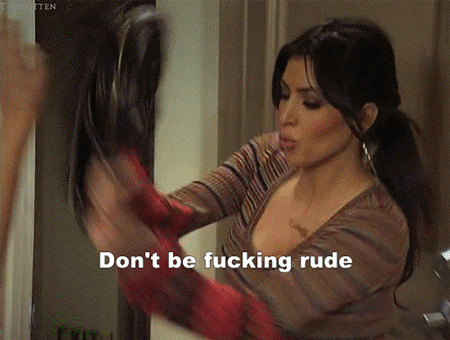
This is the first POV we get from her:

Right off the bat she's so condensending and on her fucking soapbox like she's an angel who could've done so much better while this man was attempting to attack those people who are subduing him. Her POV is SO HARD to read because she's so unreasonable and almighty. It's not fucking cute.

And then- THEN I LOST MY SHIT. She decides she's going to escape with Gren and her plan has a snag. That snag is Pashov guarding Gren. Gren tackles Pashov to the ground and her first thought is to pick up a rock and BASH HIS HEAD WITH IT?!
BITCH EXCUSE ME?! HER FIRST GUT REACTION. IS THAT. NOT RUNNING. NOT TYING HIM UP/GAGGING HIM. BASH HIS HEAD IN THE MOST VULNERABLE SPOT.

HE WASNT EVEN FIGHTING BACK?! HE WASNT ATTACKING YOU?! HE WASNT A THREAT?! AND YOU'RE FIRST THOUGHT IS TO BRUTALLY BASH HIS HEAD WITH A ROCK?! See that's the sign of someone who is capable of some horrible shit. If you do something like that to someone and it's not out of self defense or survival or necessity then you've got a dark heart sorry not sorry. Fuck Willa.

"I won’t think about his wife and his baby at home, or how kind he’s been to all of us. I can’t. I can’t."
No actually THINK ABOUT IT. YOU did that to another living being! One who was no threat to either of you. Who had been feeding, clothing, and protecting you. I hope to god you suffer crippling guilt, Willa!
It's not like they were going to harm Gren and she had to get him out of there for his safety. They were probably going to give him the translation chip, once Mardok finished them, and explain the situation to him and then free him when he calmed down. There's no reason to do any of this mad shit other than Willa feeling bad about Gren being tied up and being uncomfortable seeing it?! She could have just waited it out and talked to them about it. And they would have explained. Unreasonable. Selfish. Irrational.
Also she left Pashov bleeding out in the sand.

I hope she meets Stacy and Stacy throws fucking hands because I would.
Shes going to have to work a fucking miracle for me to see her in- even a neutral light, because my god she SUCKS and I have not felt hatred like this in all 24 of the prior Not-Hoth universe books I've read.

In conclusion-
Willa:

And godspeed to me finishing this fucking book.

Parts to this below:
《Part 1》: This part
《Part 2》:
《Part 3》:
#ice planet barbarians#icehome#ruby dixon#Icehome series#Icehome books#Willa Gren#Icehome Willa#ice planet barbarian#Pashov#Ice planet barbarians Pashov#Willa sucks#Willa's beast#Icehome willa's beast
11 notes
·
View notes
Text
Icehome book 3 thoughts(part 2):
I didn't think it was possible but Willa got WORSE. Truly impressive how awful she is. It's superhuman.
The tribe has never tried to take her from Gren once they learned she was there on their free will, yet she's constantly accusing them of trying to do this and CONSTANTLY degrading them and attacking them for simply helping and being nice!? It's maddening!

She is consistently ungrateful and rude and ignorant and refuses to not be. Because Willa surely knows everything and everyone else is the true problem of course 🙄. Because no one ever tried to talk to Gren and just tied him up for no reason!!! They are all evil and she must villanize everyone but herself, the perfect Willa. (I hope my Sarcasm is apparant here)

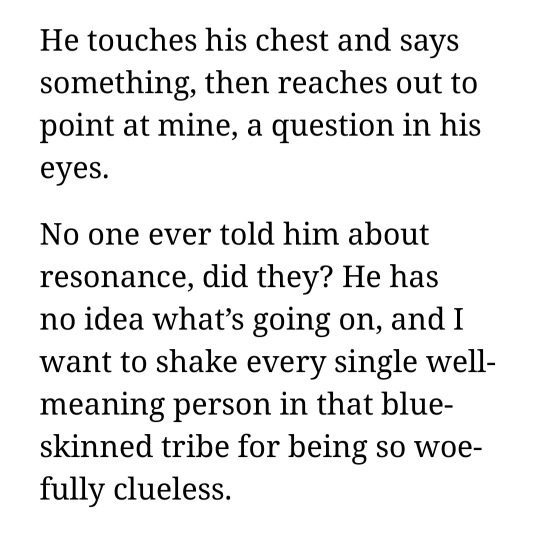

Honestly her insistence on this false fact of no one ever trying to communicate with Gren is WILD to me. It's not like everyone remembers Liz immediately trying to calm him and explain things before he lunged at her. Or when the Sa-Khui guys tried to loosen his restraints so they could try to let him move around and he-of course- attacked them. THEY TRIED.
It's almost laughable how insistent she is on this which just feeds to the fact that she's fucking delusional and made up a whole ass narrative that is so untrue and is doing everything she can to fight the cognitive dissonance and assert that her horrific actions were right!!!
When she's all like "You could've tried to talk to him! He speaks in a different language." It sent me over the edge. Like oh yeah the Sa-Khui are so primitive and dumb they didn't realize that, Willa, you are soooo right!
It's just fucking insulting!!!! I'm insulted for them... also does she not see the contradiction in that statement!??!?!

Thank god Hassen calls her out, because really Willa you wanted them to just let him run and kill anyone in sight while they try to communicate with him and pat him on the head gently?! Also that Sassy little "Ah" after her dumb as bricks assertion gave me life. Thank you for your service Hassen. Someone has to give her a taste of her own medicine.

GREN EVEN ADMITS IT

And no Gren. I think she does need to know. You need to tell her this so she can see how much of a self righteous fool she's been.
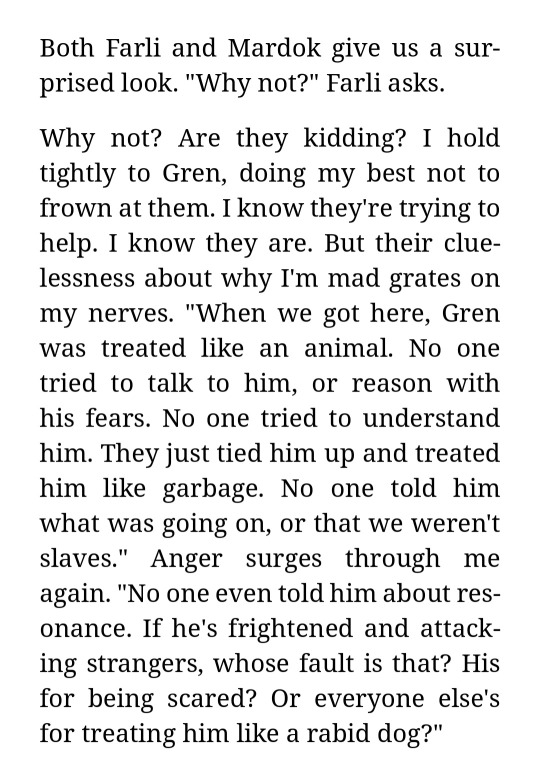

God my head hurts at the holier than thou monologues she puts us through with the same fallacy ridden, unfactual points that she beats until dead.
And can I also bring up once again how unfathomably selfish and self involved Willa is. It's always about her and her wants(which align with Gren, who she wants) and she never thinks about anyone else. She blatantly discriminates against all the sa-khui because of the fictional narrative she claims is reality and never considers anyone else's feelings. She's shocked when Mardok reveals he was going through some shit and even says something to the effect of she "didn't realize he would be sad about something".
Is she for fucking real?! Bitch W H A T?!

She doesn't see them as people capable of their own sadness and struggles. She dehumanizes them with her language constantly. She was even corrected once when calling them "aliens" with Hassen saying "No, people.". (Once again I love you Hassen.).
Shes truly the worst character POV I've ever read in a book.
Continued in part 3.
Parts to this below
《Part 1》:
《Part 2》: This post
《Part 3》:
#ice planet barbarians#ruby dixon#ice planet barbarian#icehome#icehome series#icehome willa's beast#gren#willa gren#icehome willa#willa's beast
8 notes
·
View notes
Text
fuck it doing a list of autumnal book suggestions because Cat’s Eye is so very suitable for this.
not all of these books are set during autumn or halloween related they just give me strong fall vibes. turning leaves and bonfires and crisp cold nights and golden sunlight and school days and haunted houses and all that.
Cat’s Eye by Margaret Atwood: Elaine, a moderately renowned painter in her late forties, returns to 1980s Toronto for a cumulative exhibit of her life’s work. in the process she reflects upon her girlhood adolescence in the ‘40s and ‘50s, and in particular her haunting memories of the charismatic and cunning Cordelia, who ruled their teenage clique with an iron fist.
My Cousin Rachel by Daphne du Maurier: Raised by his eccentric older cousin Ambrose, young Philip Ashley grows up in a rational bachelor’s world utterly devoid of femininity or mothering. He is horrified when Ambrose sends word that he has married his cousin Rachel while traveling abroad in Italy. Ambrose’s letters grow scarcer and more suspicious of his wife, before he suddenly dies. Philip vows revenge on Rachel, but is soon caught in her enchanting sphere of influence himself.
Wolf Hall by Hilary Mantel: Elevated by the crushing downfall of his beloved master Cardinal Wolsey, Thomas Cromwell has risen from drunken blacksmith’s son to advisor to Henry VIII. A political genius with a talent for intimidation, bribery, and manipulation, Cromwell holds to no particular morals or creed beyond the elevation of himself and his loved ones and England’s turn from Roman Catholicism to the Anglican Church. All the while, he sees the turning tide of the Reformation and the ascension of bankers and mercenaries over kings and their squabbling lords.
Urchin of the Riding Stars by M.I. McAllister: On the mysterious island of Mistmantle, a kingdom of woodland animals lives in uneasy harmony. Urchin is an orphan born from an outsider to the island, under a mysterious and sinister prophecy that proclaims he will one day destroy a great leader. As he comes of age, Mistmantle’s young prince is murdered, the ruling family is thrown into disarray, and a series of plots of murder, political intrigue, and false accusations begin.
Dragonwyck by Anya Seton: 18 year old Connecticut farm girl Miranda dreams of adventure and romance, a life far away from her devoutly religious family and domineering father. An unexpected opportunity arrives in the form of her mother’s distant cousin Nicholas Van Ryn, the enormously wealthy heir to Dutch landlords who is seeking a governess for his young daughter. Miranda is enchanted by Nicholas’ genteel manners and cold beauty, and both frightened and amazed by his supposedly haunted home, Dragonwyck. When Nicholas’ wife unexpectedly dies, he turns his attention to Miranda, setting off a deadly chain of events.
I, Tituba, Black Witch of Salem by Maryse Condé: Born a slave but raised free by the witch and healer Mama Yaya, Tituba sacrifices her freedom for her love, John Indian, and follows him from the Caribbean to Salem, Massachusetts. There she attempts to use her magic for the benefit of others, but finds herself in increasing danger and the object of hysteria, hatred, and betrayal. Ultimately she must choose how her story will end.
Uprooted by Naomi Novik: Every year the famous Dragon claims a daughter of the valley as payment for keeping the monstrosities of the corrupted Wood at bay. Clumsy and careless Agnieszka lives in fear of the day he takes away her best friend Kasia, the most beautiful and intelligent girl in their village. However, it is not Kasia who is chosen, and Agnieszka finds herself unexpectedly apprenticed to the Dragon himself, who is not a scaled beast but an extraordinarily powerful and nearly immortal wizard.
Women Talking by Miriam Toewes: In an isolated Mennonite community in South America, the women gather to discuss the horrifying revelation that the men of their village have been drugging and abusing them and their young daughters. For years they have been gaslighted into believing their unexplained injuries were the result of demons attacking them in their dreams. As they allow themselves to vigorously debate and vent for the first time, they must choose where to go from here, and whether they will stay in the only home they’ve ever known, or leave for an uncertain and dangerous future.
The Mere Wife by Maria Dahvana Headley: Herot Hall is the perfect gated community, built upon the bones of an Appalachian mining town. While Willa ferries her precocious young son Dylan between carefully monitored playdates and her husband Roger checks his security cameras at all hours, in the mountains behind the neighborhood, traumatized veteran Dana raises her own rambunctious son, Gren. Short for Grendel. As the boys grow into young men, they strike up a precarious bond, and Willa and Dana find themselves on a collision course of race, class, and gender.
25 notes
·
View notes